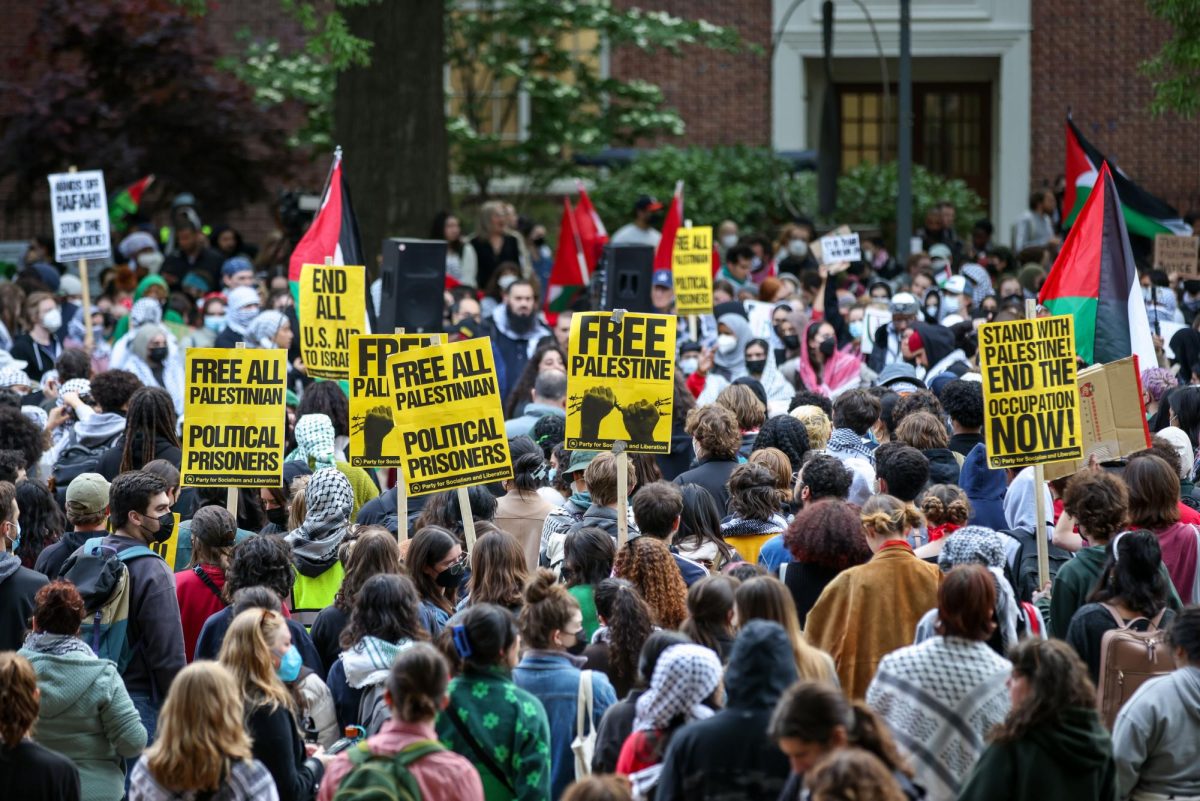Why are thousands of Americans and about a billion people around the world abstaining from eating, drinking, smoking and sex from dawn to sunset this month? They are Muslims fasting during the holy month of Ramadan, the month of fasting. Fasting is one of the Five Pillars of Islam and one of the highest forms of Islamic worship. Abstinence from earthly pleasures and curbing evil intentions and desires is regarded as an act of obedience and submission to God as well as an atonement for sins, errors and mistakes.
Muslim students at GW, organized under the Muslim Students Association, started their fasting Dec. 18. The Islamic calendar is based on the lunar cycle. The month of Ramadan is the ninth month and begins with the sighting of the new moon. The fasting period ends upon the sighting of the next new moon, which occurs after 29 or 30 days.
Ramadan brings out a special feelings of excitement and religious zeal among Muslims of all ages. Though fasting is mandatory only for adults, children as young as eight willingly observe fasting with their elders. Children look forward to the excitement of sighting the moon and eating special meals with their families. Adults appreciate the opportunity to double their rewards from God and seek forgiveness for past sins. All feel a particular closeness toward their Creator and among their family and friends.
Muslims have to change their whole physical and emotional selves during the 30 days of fasting. A typical day of fasting begins with getting up early, around 4:30 a.m., and eating before the fast begins at dawn about 5:10 a.m. As dawn breaks, the first of five daily prayers (Fajr) is offered. As the day proceeds, fasting Muslims are constantly bombarded with messages from their stomachs that it is time for breakfast, lunch and so on. And each time, Muslims remind themselves that they are fasting for the sole purpose of pleasing God and seeking mercy.
Throughout the day Muslims are encouraged to go out of their way to help the needy, both financially and emotionally. They believe a reward earned during this month is multiplied 70 times and more. For this reason, Ramadan also is known as the month of charity and generosity.
To a Muslim, fasting not only means abstaining from food, but also refraining from all vice and evils committed by us consciously or unconsciously. It is believed if one volunteers to refrain from lawful foods and sex, he or she will be in a better position to avoid unlawful things and acts during the rest of the year.
Fast is broken at sunset. Prophet Mohammed (peace be upon him) recommended breaking the fast with dates. Muslims are urged to invite others to break the fast with them. Fellow GW students and staff members are welcome to join us in breaking the fast every day just after sunset in the Marvin Center Ballroom or room 406.
After dinner, Muslims go to their houses of worship – mosques – to offer the Isha prayer, which is the last of the five daily prayers. Muslim students on campus have a prayer room in the Marvin Center room 502. The day ends with a special voluntary prayer, the Taraweeh, offered by the congregation reciting the Holy Quran, the holy book of Islam.
After 30 days of fasting, the end of the month of Ramadan is observed with a day of celebration, called Eid-ul-Fitr. On this day, Muslims gather in one place to offer a prayer of thanks. It is traditional to wear new clothes, visit friends and relatives, exchange gifts, eat delicious dishes prepared for this occasion and wait patiently for the new year.
Besides offering enormous spiritual blessings, fasting also renders numerous medical and psychological benefits to believers. Fasting helps humans get rid of various toxins, which accumulate in the body and helps eliminate harmful fatty substances from the blood, purifying the blood stream and rejuvenating the entire system.
For those engaged in medically undesirable habits such as overeating or smoking, the self-control and discipline exercised during Ramadan fasting provides an excellent beginning to “kick” these bad habits. Fasting helps one experience how a hungry person feels and what it is like to have an empty stomach. It teaches one to share the sufferings of the less fortunate. Muslims believe fasting leads one to appreciate the bounties of God, which are usually taken for granted – until they are missed.
Friday prayers are offered on campus. Our campus library also contains numerous books on Islam and Muslims. For further information, contact the Muslim Students Association at [email protected] or www.gwu.edu/~msa.
-The writer is president of the Muslim Students Association.





